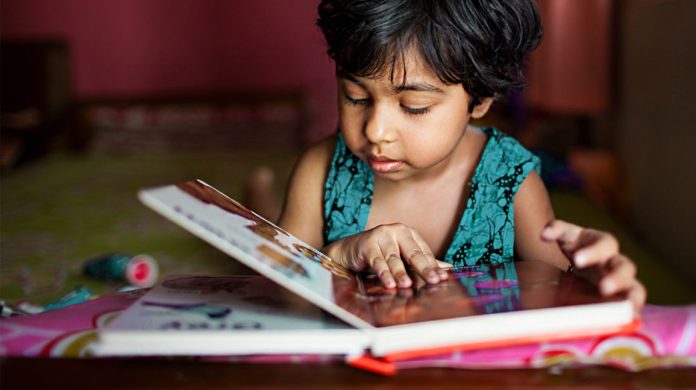The Nigerian Educational Research and Development Council has approved and recommended Hello Phonics as a book for use in Nigerian schools.
Hello, Phonics is a book produced to solve the reading challenges among primary school children. It is also geared towards curbing the rising spate of out-of-school children in Nigeria.
According to the author, Taiwo Adekanye Hello Phonics has been tested, tried and found to be effective in teaching children with difficulty in reading how to read in less than three months.
Adekanye also hinted that the book has been tailored to enable the Nigerian child to meet internationally competitive standards of reading.
“It is also ideal for the incidence of out of school children, for girl child education, adult education and mass literacy programmes,” she said.
Speaking on the concept behind her work, Adekanye affirmed that Hello Phonics is the first phonics book that infuses indigenous names and places in Nigeria, and this has gone a long way in bettering children’s source of culture while still maintaining international standards.
She said, “Hello Phonics has names like Awolowo, Balewa, Badaru, Chibuzo, Chimaroke, Olajumoke, Dogara, Balami, Dangote, Idahosa, Oyedepo, Alibaba, Ayade, Buhari, Ebele, Udom etc and places like Obudu, Adamawa, Damaturu, Lokoja, Jigawa, Sapele, Degema, Ogoni, Ikot, Eleme, Ekiti, Ikoyi etc.”
Hence, it was based on some of these laudable initiatives that made education stakeholders applaud and recommend Hello Phonics for teachers and students.
In approving the book, Prof. Ismaila Junaidu, Executive Secretary of Nigerian Educational Research and Development Council said the book was approved and recommended after a thorough assessment by the agency.
“This book has been assessed by the NERDC and was found to be useful. We, therefore, recommend it as a textbook,” he said.
The National Librarian, Prof. L.O Aina also gave props to Adekanye’s work.
According to Aina, Hello Phonics “offers an interesting, stimulating and valuable source of the educational experience for children. In view of the above, I will recommend this book to parents, teachers, and schools (Nursery/Primary schools) as a text that can be used in schools and at home”.
Another educationist, former Deputy Executive of Universal Basic Education Commission, Prof. Bridget Sokan appraised the book and gave her impression.
“I have gone through the book ‘Hello Phonics – A New Model in Reading’ for use in the Nigeria Education system. Particularly striking was the simple writing style which makes it an easy read for pupils who come in contact with the book…..the author utilized local examples as what readers can identify with,” she affirmed.
Also, Prof. Abdalla Uba Adamu, former Vice-Chancellor, at the National Open University of Nigeria applauded Adekanye’s work, describing it as a good book to help teach pupils from less privileged homes.
“Your ideas are revolutionary and wonderful. More so for children from less privileged backgrounds who do not have access to DSTV and therefore cannot watch educational programs. I join others in congratulating you for this effort,” Prof Adamu said.
The Managing Director of the Aliko Dangote Foundation, Mrs Zouera Youssoufou, was also full of praise for the author of Hello Phonics. “Adekanye’s efforts and achievements to get children to read quicker are commendable,” Youssoufou said.
On the heels of the critical acclaim, Adekanye urged the governments at various levels to consider study programmes that would boost the reading culture among children.
“There is, therefore, a need for the federal and state governments to go a step further by introducing a reading programme that can ensure that every child in public schools can read and write.
“Therefore it is necessary to adopt the Hello Phonics as a reading solution model for all children in schools that cannot read,” she said.












